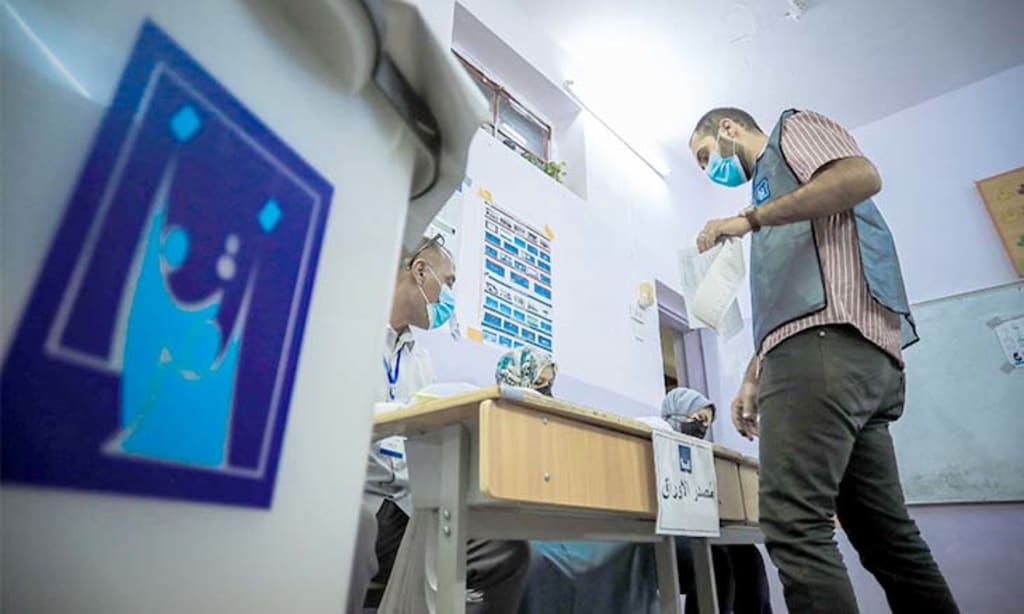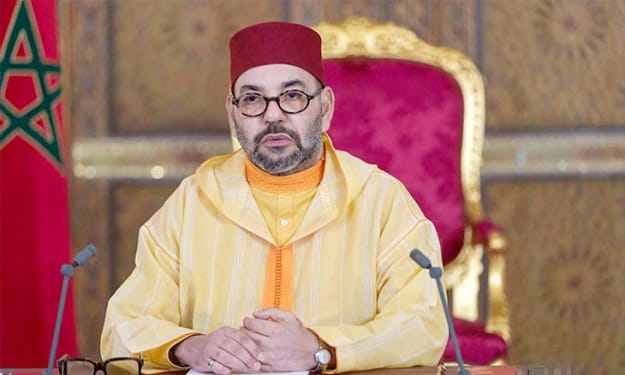Iraq: The President's Dilemma
After the occupation of Iraq, the Americans proceeded to distribute power on the basis of my identities, based on their perceptions of the identifiable demographic assessment of Iraqi society! Thus, the Governing Council was formed

After the occupation of Iraq, the Americans proceeded to distribute power on the basis of my identities, based on their perceptions of the identifiable demographic assessment of Iraqi society! Thus, the Governing Council was formed, which was announced on July 12, 2004, and included 25 members, including 13 Shiite members, 5 Sunni and Kurdish members, and one member for each of the Turkmen and Christian components. This distribution was adhered to when the first Iraqi authority was formed: a Sunni president and two deputies, one Shiite and the other Kurdish. And an interim government was announced on June 28, 2004, headed by a Shiite, and his two deputies are Sunni and Kurdish, with 31 ministers distributed as follows: 17 Shiite ministers, 6 ministers each for Sunni Arabs and Kurds, as well as two Christian and Turkmen ministers!
This identity distribution did not change with the transitional authority that was formed in 2005, that is, after the elections for the Transitional National Assembly, with the exception of the Kurds getting the position of President of the Republic, and the transformation of the Sunni representative into a vice president. The main factor in this change was the almost total boycott of these elections by the Arab Sunnis, and consequently their loss of real representation in it!
It was assumed, after the elections of the Iraqi Council of Representatives that took place in 2005, that the position of President of the Republic would return to the Arab Sunnis, but the Islamic Party, which formed the backbone of Sunni representation in the Accordance Front, relinquished this position in favor of the late Jalal Talabani, in circumstances that are still undisclosed by its parties. Keynote so far! There was an internal Kurdish need to disengage the two historical Kurdish leaders; Mr. Masoud Barzani and Mr. Jalal Talabani, and therefore the necessity for one of them to be in Baghdad. Mr. Jalal Talabani was chosen as President of the Republic of Iraq in 2005, and the other gets the position of President of the Kurdistan Region, a position that was created in the same year, as this position was not proposed during 12 years of self-administration of the region, due to the nature of the internal conflict between the two men.
The regional parliament elected Massoud Barzani in 2005 to be the first president of the region. Thus, the knot of the presidency of the region was resolved, and this situation continued until Jalal Talabani was exposed to a health crisis in 2012 that removed him from his position. After the 2014 elections, the agreement continued on distributing presidential positions in this way. Erbil versus Baghdad, and with that, Fuad Masum was elected President of the Republic.
But the struggle for the position of President of the Republic between the two main Kurdish parties; It first emerged after the 2018 elections, and that was a direct result of the renewed conflict between the two parties in the wake of the referendum crisis that took place in 2017, and the consequences of this crisis related to the Kirkuk governorate. This crisis was the main motive for the resignation of Massoud Barzani from his position in the same year, which led to the region’s parliament taking a decision to freeze the work of the Presidency of the Region, and to keep this position vacant until the Regional Parliament elected Mr. Nechirvan Barzani as President of the Region 2019 in a session boycotted by the Union Party deputies Patriotic Kurdistan (21 deputies)! These transformations were accompanied by remarkable changes in the power relations between the two parties. In 1992, the region's first parliament was formed, with both parties obtaining 50 of the 105 seats in parliament (the other five seats were reserved for the Christian minority). This parliament continued to exist until 1998, when elections could not be held after the armed confrontation between the two parties that erupted in 1994. The parliament itself was re-worked with a change in its membership by agreement between the two parties in the same proportions in 1998, when the two parties signed the Washington Peace Agreement for a transitional period And then it was agreed that the presidency of the council would alternate between the two parties. The second elections were not held until 2005, coinciding with the elections for the Transitional National Assembly that took place in Baghdad, on that day the two Kurdish parties entered into a single alliance under the name "Kurdistan National Democratic List" and won 104 seats out of a total of 111 seats.
The power relations between the two main parties in the 2013 elections were completely different. In those elections, the Democratic Party won 38 seats, compared to 18 seats for the National Union, while the Change List got 24 seats, which made the power-sharing agreement between the two main parties facing a real challenge!
This imbalance was enshrined in the 2018 elections, especially with the impact of the referendum on the relationship between the two parties. The Democrat won 45 seats, compared to 21 for the National Union, despite the decline in the presence of the Change Movement, which lost half of its seats and only got 12 seats, but in this Elections A second competitor to the Union has emerged in its regions, the New Generation Movement, which won 8 seats. This new map made the National Union Party boycott the elections for the presidency of the Council, and then boycotted the elections for the presidency of the republic! Today, as we are on the cusp of the election of the President of the Republic, which is scheduled to take place on February 7, it seems clear that the confrontation between the two parties is at its most intense over the position, especially after the results of the elections, which showed that the National Union continued to lose its strength, by obtaining only 17 seats despite its entry In an alliance with the Change Movement on behalf of the "Kurdistan List", which is its lowest outcome (the Patriotic Union won 19 seats in the 2018 elections) compared to the Democratic Party's 31 seats. The Democratic Party nominated Hoshyar Zebari, in exchange for the insistence of the National Union on the nomination of Barham Salih, and Hoshyar Zebari’s chances seemed greater after the results that the tripartite alliance (Sairoon, Sovereignty, and Democratic) was able to achieve in the elections of the Speaker and his two deputies, but the Federal Court’s decision Issued on February 3rd complicated this issue when I decided that starting the procedures of the President of the Republic required a two-thirds quorum. This may delay the possibility of holding the presidential election session without reaching a consensus between the Sadrist bloc and the coordination framework, but apart from this complexity, the victory of Mr. Hoshyar Zebari will raise a serious question about the nature of the relationship between the two Kurdish parties within the region, with regard to the distribution of positions within the region; Specifically, the positions of the President and the Prime Minister.
In the end, the political equation in the Kurdistan region, as in Baghdad, is also governed by arms, and everyone was sure of this fact in 2013 when the Change Movement won 24 seats compared to 18 seats for the Patriotic Union, yet nothing changed from the fact that the Patriotic Union controlled Absolute power in Sulaymaniyah!





Comments
There are no comments for this story
Be the first to respond and start the conversation.